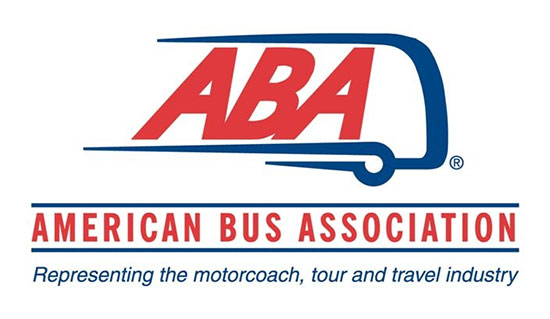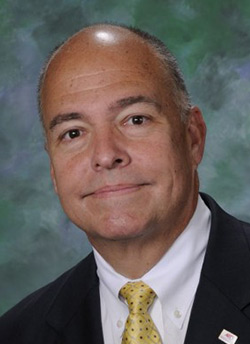- Details
- Category: Industry News
 Kristen Carroll Founder and CEO of The LMC Groups
Kristen Carroll Founder and CEO of The LMC Groups
Kristen Carroll, founder and CEO of The LMC Groups, was recently honored by The Leaders Globe magazine, which named her to their list of successful business leaders, The 20 Most Prolific CEOs of 2020. The Leaders Globe honors “CEOs who have not only led their companies but have made them touch new heights of success.” Carroll was recognized specifically for leading The LMC Group not only to survive but also to grow and succeed, even during a global pandemic. Carroll is the founder of The LMC Groups, a consulting firm that provides fractional management and executive services to small and mid-sized businesses.
“I was truly humbled to be included in this group of prolific CEOs and leaders, but even more, I had the opportunity to reflect with gratitude on the amazing support, learning, and guidance I’ve received from business leaders, colleagues, and mentors throughout my career,” says Carroll. “I was honored to share some of my own insights and pay it forward to aspiring entrepreneurs and business leaders. I’ve always believed that success is not worth a thing if it doesn’t contribute to the success of others.”
In addition to LMC’s growth, The Leaders Globe lauded Carroll’s ethics alongside her myriad talents in business management, art, music, writing, and mentorship. The Leaders Globe interviewed Kristen and the full article is available on their website.
Soon, Carroll will be adding “published author” to her list of accolades. Her forthcoming book, Life Is Yours: How to Be the CEO of Your Life, is based on her own life experiences and personal philosophy. The opportunity for penning her diverse experiences arrived when an agent from Indigo River Publishing approached her with a book offer. The agent had been following her inspiring and multidisciplinary journey on the various social media platforms and by reading her blog posts and magazine articles.
The distinguishing feature that attracted the publishing house was Carroll’s distinct voice—a characteristic often uncommon in business books. Carroll’s extensive speaking and writing experience made her an ideal candidate for the venture. Her outstanding portfolio of achievements further added to the long trail of her noteworthy experiences.
“As a lifelong writer, it’s been a plan of mine to write a series of books to share the knowledge I’ve amassed working with many diverse organizations and leaders throughout my career,” says Carroll.
Visit lmc.group for more information.
[01.22.21]
- Details
- Category: Industry News

The inauguration of the President Joe Biden this week was unlike most celebrations we’ve seen in the past—with COVID still a factor and threats of violence locking down our nation’s capital—but one familiar sight was the number of ground transportation vehicles being used during the festivities. According to the American Bus Association (ABA), motorcoaches played a major role as always this week in D.C.—as many as 500 motorcoaches from all around the country brought 25,000 National Guard members into the city.
 Photo courtesy of Michael Knispel member of Professional Motorcoach Operators FB group
Photo courtesy of Michael Knispel member of Professional Motorcoach Operators FB group
"Once again these small family businesses have heard the call and answered it," said ABA President & CEO Peter Pantuso. "Just like during hurricane season in the South this past summer and fall, these businesses that are struggling to survive the effects of the pandemic are rallying their drivers and buses to help protect our nation’s capital."
As we all know, the motorcoach industry has been one of the hardest hit in the transportation sector with little assistance from the government. Associations such as ABA and the United Motorcoach Association lobbied Congress for dire aid for 10 months as the more than 80,000 personnel were furloughed and nearly half of the industry's 3,000 small, family-owned businesses shuttered. In December 2020, the industry received a desperately needed shot in the arm when Congress passed the latest relief package that included $2 billion for the industry to share with the school bus and passenger vessel industries. The industry had originally asked for $10 billion through the Coronavirus Economic Relief for Transportation Services (CERTS) Act, which had received 60 Senators and 271 Representatives signing on to co-sponsor in the 116th Congress.
 ABA President & CEO Peter Pantuso
ABA President & CEO Peter Pantuso
"The private motorcoach industry has lost more than $11 billion because of the pandemic and is only running at 10-15 percent capacity compared to 2019 levels," Pantuso said. "We asked for $10 billion during the 116th Congress, but as the pandemic keeps going so does our growing need for funding to keep our industry afloat. We look forward to working with the Biden Administration and the 117th Congress to get the bridge we need to survive."
Visit buses.org for more information about the ABA.
[01.22.21]
- Details
- Category: Industry News

The Global Business Travel Association (GBTA), the world’s largest business travel association, has released the results from its 15th coronavirus poll, the first in 2021, to measure the impact on business travel following the widespread onset of the pandemic last year. The latest survey finds that more than half of respondents expect most of their employees will return to the office by Q3, in line with a return to non-essential business travel and a growth in traveler confidence.
 GBTA Interim Executive Director Dave Hilfman
GBTA Interim Executive Director Dave Hilfman
“While we continue to face challenges for our industry, there is light at the end of the tunnel and projections for a return to some normality remain positive for Q3,” said GBTA Interim Executive Director Dave Hilfman. “The global roll out of vaccination programs continues to be a key driver in restoring traveler confidence, but uncertainty remains around traveler requirements for a return to business travel, whether this be pre-testing, testing on arrival, or proof of vaccine. GBTA will continue to lobby on behalf of members for clarity and a consistent approach among governments.”
Key Findings:
- More than half (54 percent) of GBTA poll respondents expect most of their employees will return to the office by August (Q3). Just 8 percent report most of their employees have already returned to the office, 17 percent expect their employees to return to the office in the next 1-4 months and an additional one-third (29 percent) expect employees to return to the office in 5-8 months.
- Ten percent (10 percent) expect their employees to return in nine months or longer. One-quarter (26 percent) report they have not decided and an additional one in ten (11 percent) respondents are unsure.
- Plans to resume non-critical business travel follow a similar trajectory as returning to the office. Six percent of respondents report their company has resumed non-business critical business travel. One in ten (13 percent) GBTA members report they expect employees to resume non-critical business travel in the next 1-4 months and one in three (29 percent) expect this travel category to resume in 5-8 months. An additional one in five expect non-critical business travel to resume within 9 months or more (20 percent) or have not made a decision (20 percent). About 11 percent remain unsure.
- There is a still a large amount of uncertainty around what will be (or is currently) required for employees to return to business travel among GBTA members.
- The use of mobile apps to verify the health status of passengers is more commonly accepted. Buyers and procurement professionals were asked to rate their comfort with travel suppliers—such as airlines or hotels—using mobile apps to verify the health status of passengers. Four in ten say they are ‘comfortable’ (32 percent) or ‘very comfortable’ (12 percent). One in five are ‘not comfortable’ (11 percent) or ‘not at all comfortable’ (10 percent) with using mobile apps to verify the health status passengers or guests. An additional one in five (19 percent) are ‘neither comfortable nor uncomfortable’ or are ‘unsure’ (16 percent).
The vaccine continues to be at the forefront of the recovery plan. When asked to assess comfort with allowing employees to travel for business if certain travel industry workers—such as flight attendants, pilots, and hotel employees—are classified as essential workers (which could allow them to receive their vaccination before the general population), a majority say it would. Two-thirds (64 percent) of respondents report vaccinating certain travel industry workers would make them ‘somewhat’ or ‘a great deal’ more comfortable. One in four (27 percent) say it would make them ‘a little bit’ or ‘not at all’ comfortable and one in ten (9 percent) are unsure.
View the entire poll results here and key highlights here.
Methodology: GBTA conducted a poll of its members across the globe from January 11-18, 2021. A total of 733 responses were received.
Visit gbta.org for more information.
[01.21.21]

